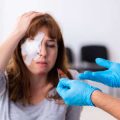Introduction: Personalising Medical-Grade Skincare in the UK
The landscape of skincare is rapidly evolving, and nowhere is this more evident than in the growing demand for tailored, medical-grade regimens—especially as we seek to address the unique needs of ageing skin. In the UK, with its distinctive climate and environmental factors, a one-size-fits-all approach simply won’t do. The importance of personalisation cannot be overstated; British skin often contends with specific challenges such as frequent exposure to damp weather, fluctuating temperatures, and lower levels of sunlight. These elements can accelerate visible signs of ageing, including dryness, fine lines, and uneven tone.
Medical-grade skincare products stand apart from their high-street counterparts due to their clinically-proven ingredients and potent formulations. These products are typically recommended by dermatologists or skin specialists and are designed to penetrate deeper layers of the skin, offering targeted results that over-the-counter solutions rarely match. However, while the science behind these products is robust, their effectiveness is maximised only when they are selected and used based on individual skin characteristics, life stage, and lifestyle.
For those living in Britain, tailoring a skincare routine goes beyond product selection; it involves understanding how local water hardness, pollution levels in urban centres like London or Manchester, and even traditional British habits (such as enjoying time outdoors regardless of the weather) impact skin health. This article will explore how to effectively customise medical-grade skincare regimens for ageing skin at different stages of life, ensuring advice is grounded in both scientific evidence and an appreciation for the realities of British living.
2. Early Adulthood (20s-30s): Preventative Approaches and Habits
Early adulthood is a critical period for laying the groundwork for long-term skin health. While the signs of ageing may not yet be apparent, adopting preventative habits now can make a significant difference in the decades to come. In the UK, where weather conditions are often cloudy and unpredictable, its easy to overlook sun protection. However, UVA rays penetrate clouds and contribute to premature skin ageing year-round.
Advice on Preventive Care
Establishing a consistent skincare regimen is paramount. Key elements include gentle cleansing, regular exfoliation, and targeted hydration. Medical-grade products offer higher concentrations of active ingredients compared to over-the-counter alternatives, delivering clinically proven results. Incorporating antioxidants such as vitamin C serums helps combat environmental stressors, while retinoids can support cellular turnover even at this age.
Sun Protection: A British Perspective
Despite frequent overcast skies in Britain, daily sun protection remains non-negotiable. Broad-spectrum SPF 30 or above should be part of your morning routine, regardless of season. Many medical-grade moisturisers now combine hydration with robust UV protection—ideal for streamlining busy mornings.
Sample Medical-Grade Regimen for 20s-30s
| Step | Product Type | Purpose |
|---|---|---|
| 1 | Gentle Cleanser | Remove impurities without stripping skin barrier |
| 2 | Antioxidant Serum (Vitamin C) | Protect against free radicals and brighten complexion |
| 3 | Lightweight Moisturiser | Hydrate and maintain healthy barrier function |
| 4 | Sunscreen (SPF 30+) | Defend against daily UV damage—even on cloudy days |
Cultivating these habits early enables you to maintain youthful, resilient skin well into the future. Consulting with a skincare professional about appropriate medical-grade options ensures that your regimen is tailored to your individual needs and evolving skin concerns.

3. Midlife (40s-50s): Addressing Visible Signs of Ageing
As we enter our 40s and 50s, the skin’s natural renewal processes slow down, resulting in more pronounced fine lines, uneven pigmentation, and a noticeable reduction in firmness. Customising a medical-grade skincare regimen at this stage is crucial for targeting these concerns with precision and efficacy. British dermatologists commonly recommend integrating potent active ingredients that are clinically validated and widely available within the UK market.
Prioritising Targeted Ingredients
Retinoids—such as prescription-strength tretinoin or over-the-counter retinol—remain the gold standard for stimulating collagen production and smoothing fine lines. For individuals with sensitive skin, bakuchiol offers a gentler alternative while still delivering anti-ageing benefits. To address pigmentation, medical-grade formulations containing stabilised vitamin C (ascorbic acid) or niacinamide are highly regarded for their ability to brighten complexion and even out skin tone without irritation.
Combating Loss of Elasticity
Peptides and growth factors are increasingly popular in the UK for promoting skin firmness by supporting the extracellular matrix. Products containing hyaluronic acid can be layered underneath moisturisers to boost hydration and plumpness, which becomes particularly important as the skin’s natural moisture content diminishes with age.
Building a Routine for Results
A typical midlife routine may begin with a gentle cleanser suited for maturing skin, followed by an antioxidant serum in the morning (preferably vitamin C), a targeted treatment (retinoid or peptide-based) in the evening, and diligent use of broad-spectrum SPF 30+ daily—even on cloudy British days. It’s wise to consult with an aesthetic practitioner or dermatologist for periodic reviews and adjustments, ensuring your regimen evolves alongside your skin’s changing needs.
By focusing on science-backed products trusted within UK dermatology circles, individuals in their 40s and 50s can achieve meaningful improvements in texture, tone, and elasticity—maintaining confidence in their appearance throughout midlife.
4. Senior Years (60s and above): Supporting Mature Skin
During the senior years, skin undergoes a host of changes that demand more attentive, customised care. The natural ageing process can lead to thinning epidermis, reduced elasticity, and compromised barrier function. For the older British population, environmental factors such as frequent exposure to cold winds and central heating further exacerbate dryness and sensitivity. At this stage, protecting skin integrity, maintaining optimal hydration, and embracing advanced medical-grade skincare solutions are essential strategies.
Recommendations for Protecting Skin Integrity
As the skin’s natural defences weaken, it is crucial to minimise potential irritants and mechanical damage. Gentle cleansing routines using non-foaming, fragrance-free cleansers are preferable. Avoiding harsh exfoliants and alcohol-based products helps reduce the risk of micro-tears and excessive dryness. Barrier repair creams enriched with ceramides or squalane can be particularly beneficial for reinforcing the skin’s natural protective layer.
Enhancing Hydration
Hydration remains a cornerstone in senior skincare regimens. Mature skin tends to lose moisture rapidly due to decreased lipid production and a slower cell turnover rate. To address this, layering hydrating serums containing hyaluronic acid or glycerin beneath richer emollients is effective. Occlusive moisturisers help lock in water, offering additional support during colder British months. Consider using humidifiers indoors to counteract drying effects from central heating.
Hydration Strategies Table
| Step | Recommended Product Type | Purpose |
|---|---|---|
| Cleansing | Cream-based cleanser | Maintains moisture while gently removing impurities |
| Treatment | Hyaluronic acid serum | Deep hydration at the cellular level |
| Moisturising | Ceramide-rich cream | Restores barrier function; prevents transepidermal water loss |
| Protection | Mild SPF moisturiser (broad-spectrum) | Shields against UV-induced damage even on overcast days |
Leveraging Advanced Medical-Grade Solutions
Seniors benefit from targeted ingredients supported by robust clinical data. Peptide complexes can stimulate collagen production, while antioxidants like vitamin C help combat oxidative stress—a prevalent concern due to cumulative sun exposure. For those seeking intervention beyond topical agents, professionally supervised treatments such as microneedling or prescription retinoids may be discussed with a consultant dermatologist.
Practical Advice for Older Adults in the UK:
- Routine Skin Checks: Schedule regular appointments with your GP or dermatologist for early identification of age-related concerns such as actinic keratosis or skin cancers.
- Lifestyle Adjustments: Maintain a balanced diet rich in omega-3 fatty acids and antioxidants; stay hydrated, especially during winter months.
- Bespoke Regimens: Consult healthcare professionals who specialise in geriatric dermatology for guidance on tailoring medical-grade products to your unique needs.
- Sunscreen Use: Even when skies are grey, daily use of broad-spectrum SPF is advisable due to persistent UVA exposure in the UK climate.
The right combination of gentle protection, potent hydration, and clinically validated actives can significantly enhance comfort and appearance for mature skin in later life. By adopting evidence-based practices and seeking professional advice where needed, seniors across Britain can uphold both skin health and confidence well into their golden years.
5. Navigating the UK Skincare Market: Accessibility and Consultation
When customising medical-grade skincare regimens for ageing skin, especially in the UK, knowing where to source reputable products and whom to consult is essential. The British market is brimming with options, but not all are created equal—accessibility, regulation, and professional guidance play significant roles in ensuring safety and efficacy.
Sourcing Reputable Medical-Grade Skincare in the UK
First and foremost, it is important to distinguish between over-the-counter (OTC) cosmeceuticals and true medical-grade skincare. Medical-grade products typically contain higher concentrations of active ingredients and are often supported by clinical evidence. In the UK, these products are usually available through registered clinics, dermatologists, or pharmacies rather than high street shops. Look for brands that are recommended by NHS-affiliated dermatologists or are dispensed via reputable private clinics.
Practical Tips for Safe Sourcing
- Always purchase from licensed clinics or pharmacies. Avoid third-party online retailers unless they are directly affiliated with established medical providers.
- Check for MHRA (Medicines and Healthcare products Regulatory Agency) approval where applicable.
- Seek out brands that provide transparency regarding ingredient sourcing, clinical trials, and manufacturing standards.
Consultation: NHS vs Private Options
The NHS offers dermatological consultations primarily for medical skin concerns, such as eczema, psoriasis, or severe acne. While anti-ageing regimens may not be a routine focus of NHS services unless linked to a medical condition, your GP can refer you to a dermatologist if there are health-related concerns about your skins ageing process. For more tailored cosmetic advice or advanced treatments (such as prescription retinoids or professional peels), private clinics may be more appropriate. Many offer initial consultations—sometimes complimentary—where bespoke regimens can be discussed based on your age, skin type, and goals.
Making the Most of Professional Advice
- Prepare a list of current products and concerns before your consultation.
- Ask about the suitability of products for different life stages—what works at 40 might not suit you at 60.
- Enquire about ongoing support or follow-up to monitor your skin’s progress and adapt your regimen as needed.
Key Takeaway
The UK’s regulated environment provides a level of protection but also requires due diligence when choosing both products and practitioners. Whether you access care via the NHS or go private, always prioritise evidence-based advice and trusted sources for optimal outcomes in age-specific skincare routines.
6. Embracing Change: Seasonal and Lifestyle Considerations
When customising medical-grade skincare regimens for ageing skin, it is essential to consider the dynamic nature of life in Britain, with its distinct seasons, diverse living environments, and modern lifestyle factors. Each of these elements can significantly impact the effectiveness of a skincare routine and the way skin ages over time.
Adapting to Britain’s Varied Climate
The British climate is famously unpredictable—rainy spells, brisk winds, and sudden temperature shifts are all par for the course. In winter, central heating and cold air can strip moisture from the skin, exacerbating fine lines and dryness. During these months, regimens should include richer emollients and barrier-repairing ingredients such as ceramides or squalane. Come summer, higher humidity may require lighter formulations and increased use of antioxidants to combat pollution and UV exposure. Regular use of broad-spectrum SPF is non-negotiable year-round, as UVA rays contribute to premature ageing even on overcast days.
Urban Versus Rural Living
Where you live in the UK also plays a role in how your skin ages and which products serve you best. City dwellers contend with higher levels of pollution and blue light from screens; this calls for daily cleansing with medical-grade cleansers capable of removing particulate matter, along with serums rich in vitamin C or niacinamide for added environmental defence. Conversely, those in rural areas might focus more on hydration and protection against windburn or agricultural allergens. Tailoring your regimen to your local environment ensures optimal results at every life stage.
The Impact of Travel, Diet, and Stress
Modern British lifestyles often include frequent travel—whether hopping on a train for a weekend in Cornwall or jetting off to sunnier climes. Air travel can dehydrate skin rapidly; packing hydrating mists, sheet masks, or portable moisturisers helps maintain skin comfort on the go. Diet also matters: traditional British fare may lean towards hearty but less skin-friendly options; prioritising oily fish, fresh produce, and nuts can support skin health from within. Finally, stress—prevalent in busy urban centres—can accelerate signs of ageing via hormonal changes. Incorporating stress-relieving rituals such as gentle facial massage or mindful evening routines supports both mental wellbeing and skin vitality.
Practical Tips for Every Stage
- Young adults: Focus on prevention with consistent SPF use and antioxidant protection.
- Middle age: Adjust hydration levels seasonally; introduce peptides and retinoids as needed.
- Mature skin: Opt for richer textures in colder months; prioritise regular professional assessments to adapt regimens proactively.
Summary
In summary, embracing change is fundamental when customising medical-grade skincare regimens for ageing skin across different stages of life in the UK. By responding thoughtfully to seasonal shifts, local environments, lifestyle habits, and stressors unique to British life, individuals can optimise their skincare strategies for healthy, resilient ageing—whatever the weather or postcode.


